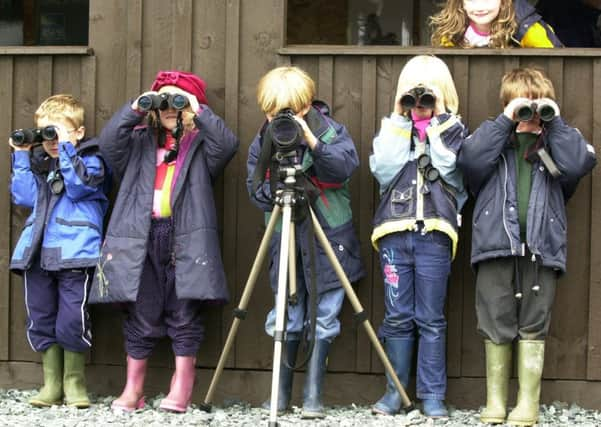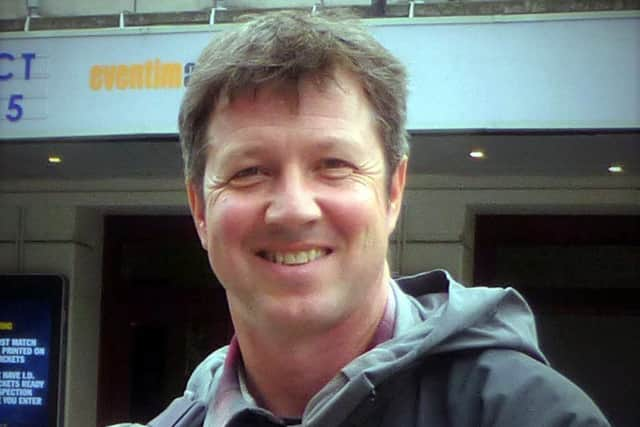Ignore negativity nature boys and girls are all around us in Scotland


But it isn’t the face value of such statements that’s the worry. The concern is what they obscure, and that they aren’t challenged and unpacked in more constructive ways.
Is the issue really as acute as these statements suggest? The air we breathe is “nature”. So too is the food we eat. If children truly were “disconnected from nature”, they’d be dead. If one in ten children is obese, nine aren’t then? Prisons offer enlightened rehabilitation schemes, some with extensive outdoor dimensions focused on gardens, nature reserves and National Parks.
Advertisement
Hide AdAdvertisement
Hide AdIt’s not a binary thing. We’re not either connected or disconnected. We’re all somewhere on a spectrum that reflects our experiences, knowledge and proximity to nature, and our values in relation to it.


Research conducted by the RSPB in 2012 found 21 per cent of 8-12 year-olds had “a level of connection to nature that is considered to be a realistic and achievable target for all children”. Ok, not great, and scope to do lots more. Yes, there are barriers we need to explore and address, relating to perceptions, distractions, opportunities and finances.
But blanket pessimism conceals three things. First, the great work taking place on a daily basis bringing young people and nature together. Second, that it’s those from poorest backgrounds who have least access and opportunity. And third, the exciting potential to achieve further progress.
Rich Mitchell, Professor of Health and Environment at The University of Glasgow, offers a balanced perspective: “I believe nature can be important for human health and wellbeing. Getting more children in touch with nature, more often, is an important and worthwhile aim.”
He rightly cautions against “exaggerating both the extent of the “problem” with our children’s health, and the potency of the “solution” that nature might offer… It’s easy to let our worries about children’s health obscure the extraordinary progress that has been made. In the UK children are safer, better housed and better protected than ever.”


We can do more to shift the narrative, and we can cite plenty of good news stories. In Scotland the numbers involved in the Duke of Edinburgh Award have risen by 80 per in the last five years, generating three million hours of activity last year. John Muir Award participation is up by 15 per cent in Scottish schools, with disadvantaged pupils accounting for one in five of the 16,000 Awards achieved in 2016. Scotland’s two National Parks support 200 schools between them, engaging over 5,000 pupils in Outdoor Learning, while Scouts Scotland has seen ten years of consecutive growth and now has its highest membership this century.
These are just some of examples of measurable, structured activity. Beyond this there’s a world of informal, unstructured, spontaneous outings that aren’t – and don’t need to be – captured and recorded.
More school time is spent outside now, according to a Scottish Natural Heritage report comparing outdoor events from 2006 and 2014, but with provision unevenly spread: “In general, pupils in more deprived areas were less likely to have a residential outdoor experience, and were more likely to experience shorter outdoor events.”
Advertisement
Hide AdAdvertisement
Hide AdSimilarly, a John Muir Trust study with Glasgow University found that while one in ten children in Scotland had never experienced wild places, in the poorest neighbourhoods the figure was one in four.
This gap is underplayed. The State of Nature 2016 report references positive links between nature connection, attainment, health and life satisfaction – but not how this varies across socio-economic circumstances. The Natural Childhood report (National Trust, 2014) mentions poverty just once, acknowledging in the foreword that the problem is more pronounced in low-income urban areas.
It’s an issue that merits more attention to ensure that access and opportunities are equitable across society.
Since 2012, Scottish Government has recommended that Outdoor Learning should be “an entitlement for all learners”. Not just an option, but a “regular, progressive, curriculum-led” entitlement.
Natural Connections, an influential 4-year Natural England project, offers evidence of the benefits of learning in outdoor environments, and practical guidance on ‘Transforming Outdoor Learning in Schools’. The scope to contribute to improving attainment is great. And the SNH report mentioned above indicates that “at least a further doubling of durations of provisions is realistically achievable for schools”.
So let’s get past headline-grabbing messages of doom and gloom. Talk up the good stuff, learn from the less good, and keep a sensible perspective. Politicians, practitioners, parents, pupils – all have a role to play to make sure outdoor experiences are a vital and valued part of a healthy mix of influences on the lives of Scotland’s children and young people.
Rob Bushby, John Muir Award Manager